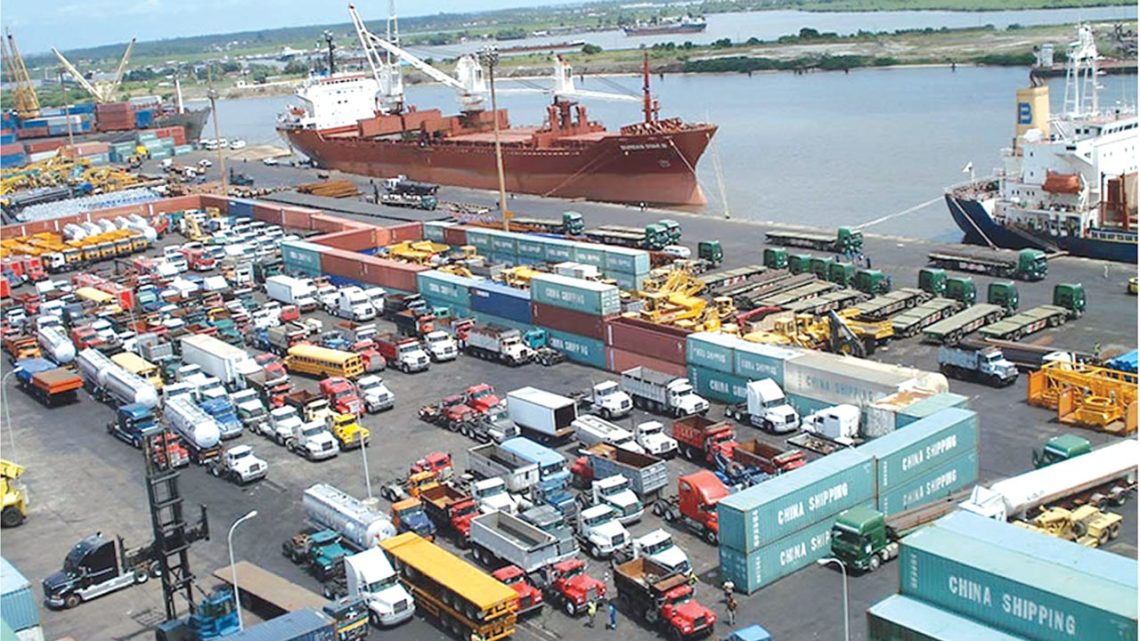For the nation’s seaports to be efficient, there should be order and flow processes. A lecturer at the Lagos Business School (LBS), Dr. Frank Ojadi, has said.
Ojadi, a logistics expert, however, said operators should see how they can facilitate internal processes of the port where everyone has its own objective totally different from the common objective of speedy supply chain.
He stated further that, the Nigeria Customs Service (NCS), must do their clearing fast, and other agencies involved must join the Customs Service for a one- stop-shop inspection of cargoes in other to exit the port.
“There should be order and flow processes that should be put in place. It took the congestion era for us to know that trucks don’t just go into the port but, there should be a pre-preparation stage before they can access the seaport and that gave rise to Eto and holding bay.
“We should see how we can facilitate the internal processes of the port where everyone has its own objective totally different from the common objective of speedy supply chain. The customs must do their clearing fast and other agencies involved must do their own inspection fast.
“We have seen the scanners coming in and if deployed, they can scan, then they will also help facilitate cargoes out of the port but and another problem is that most importers in Nigeria don’t import homogeneous goods so they still have to go through physical examination.
“So, terminal operators should be allowed to run the scanners so that when a container is being offloaded, they are sent to the scanning and the result is file that when he came to pick up, he knows what he’s carrying because you have all the information. So, in that way there will be leadership in offering speedy services at the port,” Ojadi said.
Speaking recently on Nigeria’s port lack of efficiency, the executive secretary, Nigeria Shippers’ Council (NSC), Hon. Emmanuel Jime, said the interferences of officers of the Nigeria Police Force (NPF), often disrupt cargo dwell time, increase demurrage, storage charges for the consignees.
According to Jime, Nigerian seaports has an unenviable reputation of being one of the ports with the longest cargo dwell time in the world.
He said, “While it takes only six hours to clear cargo in Singapore and about seven days in Lome, it takes an average of 21 days to do so in Nigeria. Long dwell time of cargo renders the ports inefficient, create congestions, increase the cost of doing shipping business and ultimately leads to high price of goods and services in the economy.”
Jime, who rued police interference, however, stated that it often disrupts cargo dwell time, increase demurrage, storage charges for the consignees, extortion, which ultimately lead to increase in prices of goods and services in the country.
He said, “NSC collaborates with several agencies, including the maritime police to enforce compliance with the established standards, eliminate corruption and bring down costs of doing business in our ports.
“The intervention by the Council led to receipt of several reports from the users of port services (consignees, freight forwarders, haulers) about the incessant interference in the cargo clearance processes.
“The Council had on several occasions carried out investigations on the matter to ascertain the truthfulness or otherwise of the claims, and confirmed that these practices were carried out by various groups,” he said.
On his part, member of the governing board, Council for the Regulations of Freight Forwarding in Nigeria (CRFFN), Increase Uche, reiterated that the nation’s seaports lack efficiency.
Uche, a former president, National Association of Government Approved Freight Forwarders (NAGAFF), said Apapa and Tin-Can Island port have an index of a falling and failing ports.
According to him, indications such as lack of free access to the port, difficulty in cargo evacuation, vessels delays, long dwell time of cargoes, among others are prevalent in the nation’s port system.
He said when Apapa and Tin Can Island ports were to be concessioned in 2006, “we were told they will be user- friendly, vessel turnaround time will reduce and as well generate more fund for the economy.”
Uche, though, acknowledged that throughput increased after concessioning, he faulted the government for not building requisite infrastructure commensurate to the increment.
“You don’t allow cargoes to over stay at the terminal because port is not a storage bay, let cargoes move, the speed cargo moved from terminal to hinterland count more and this are enabler for port efficiency. So, I don’t believe the ports are over-streched but bad management.”





